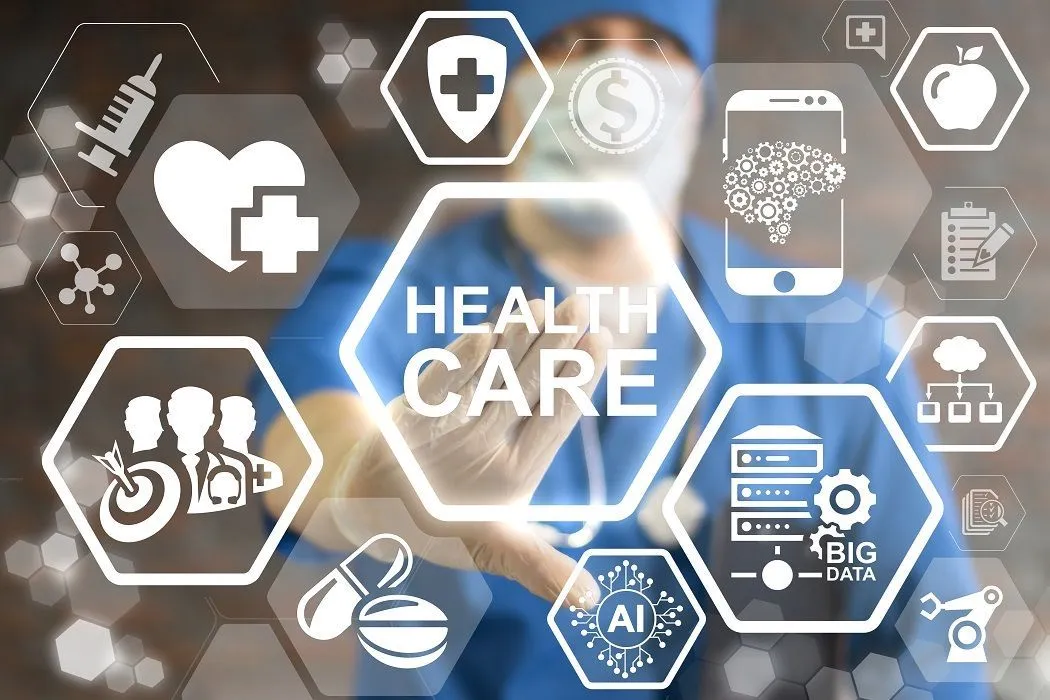
New Delhi: As 2024 draws to a close, a year marked by global political shifts and economic challenges, India stands at a critical juncture in healthcare. Key sectors such as medtech, diagnostics, and pharmaceuticals are set to play vital roles as the country adapts to structural policy changes, shifting demographics, and the rising impact of Artificial Intelligence and automation. Estimates suggest that each segment of the Indian healthcare industry could double its market size within the next five to seven years. However, experts caution that achieving this ambitious growth will demand resilience, adaptability, and an unwavering commitment to innovation. Given the rapidly evolving landscape shaped by innovation and political shifts, stakeholders from various segments of the healthcare industry emphasize the need for a focused approach to tackle near-term challenges while maintaining a clear long-term vision. This prompts a critical question: What’s on the healthcare industry’s agenda for 2025?
Shedding light on the hospital sector, Ashutosh Raghuvanshi, MD & CEO, Fortis Healthcare Ltd., highlighted that the hospital market is projected to grow from nearly $99 billion in 2023 to an estimated $194 billion by 2032. He emphasized that hospitals have emerged as the leading recipients of foreign direct investment within the healthcare landscape.
Behind this positive outlook, Raghuvanshi noted factors such as higher occupancy rates and increased average revenue per occupied bed as enablers of sustainable growth. Going forward, an aging population will drive demand for specialized geriatric care, while a growing emphasis on preventive care will shift the focus from treating illness to promoting wellness.
For the medical devices sector, Himanshu Baid, Managing Director, Poly Medicure Ltd., stated that the market is expected to reach $50 billion by FY30. He emphasized the importance of stepping up investments in R&D and innovation. “By addressing key supply chain challenges and fostering a culture of innovation, India is poised to set new benchmarks,” Baid added.
The diagnostics sector is also expected to witness significant growth. According to Ameera Shah, Promoter and Executive Chairperson, Metropolis Healthcare Ltd., the industry is projected to grow from $13 billion in FY23 to $25 billion by FY28.
“However, the path forward demands a strategic focus on technology, accessibility, and collaboration. Consolidation through mergers and acquisitions will be key to overcoming industry fragmentation, enabling companies to scale, expand reach, and ensure uniform quality,” Shah explained. She also stressed the importance of operational excellence, supply chain innovation, and adapting to evolving clinical needs to maintain a competitive edge.
Unlike other healthcare sectors, the pharmaceutical industry has historically focused on limited segments like simple generics. Despite this, the industry has maintained a balance in its import-export equilibrium, with exports contributing $27 billion of its current $58 billion market size.
Looking ahead, Sudarshan Jain, Secretary General, Indian Pharmaceutical Alliance (IPA), predicts the industry will grow to $120–130 billion by 2030. He highlighted the opportunity in the global biosimilars market as patents for blockbuster biologics expire by 2025.
Indian drug makers are also diversifying their portfolios and entering new segments. Jain noted that India’s Contract Development and Manufacturing Organizations (CDMOs) are emerging as preferred partners for biologics manufacturing, driven by cost advantages, robust regulatory compliance, and technical expertise.
Reflecting on recent expansion efforts, Raghuvanshi shared that a defining trend this year has been the expansion into Tier 2 and Tier 3 cities, which is crucial for bridging gaps in access to quality care. Similarly, Shah pointed out that expanding affordable, high-quality diagnostic services into these regions remains an untapped opportunity with immense potential to contribute to universal health goals.
Highlighting the future of diagnostics, Shah emphasized the role of genomics, digitalization, and advanced technologies such as AI, machine learning, and data analytics. “These technologies will redefine precision and efficiency while keeping patient outcomes at the core,” she said.
In the medical devices sector, Baid remarked, “The future belongs to those who can develop transformative technologies that address the healthcare needs of a dynamic and diverse world.”
Jain highlighted key areas of progress, including discovery products such as Nafithromycin and Saroglitazar, which should propel research in India. He also mentioned the establishment of committees to streamline regulatory reforms, creating an enabling ecosystem for R&D.
Additionally, Jain pointed to advancements in cutting-edge areas such as CAR-T cell therapy, mRNA vaccines, and complex molecule development as drivers of future growth. However, he cautioned that success in these areas requires a strong innovation pipeline, enhanced regulatory compliance, and global market expansion.
The Indian healthcare industry is well-positioned to mitigate near-term challenges and capitalize on opportunities in 2025. However, realising its potential will require accelerating the adoption of emerging technologies like AI, increasing R&D investments, and focusing on innovation. Exploring unconventional business models and leveraging mergers and acquisitions will be key to entering new markets and diversifying portfolios.







